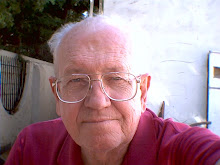For the uninformed, i.e. the young or the uneducated, the task of exposing a lie is a daunting one. The best weapon is knowledge
[see blog. go to link at bottom of this page.], but this is precisely what youth and the uneducated lack. To understand this, and to see how to expose a lie, consider the following hypothetical situation: Say you have a panel of two people, one of which is a liar and the other is not. Say also that each is subject to making honest errors. Now say the measure of a lie is the intention to misinform; that is, there are two requirements: 1) intent, and 2) use of information that does not agree with reality. The situation can be made more difficult if the liar is capable of mixing true statements in with false ones. Difficulty can also be enhanced if the liar accuses the honest man of being a liar. Note that a clever liar will be highly knowledgeable and will be able to accuse his opponent of lying whenever the opponent simply makes an erroneous statement, even though the statement was made without any intention of deceit.
The best tool for uncovering a lie is knowledge. If one of the two people on the panel insists that “George Bush has poisoned Americans,” then the statement requires further investigation. “When, where and how?” If the reply is vague: “You know, all over the country,” you must be knowledgeable enough to realize such a wide scale event would be impossible to conceal. If the reply is precise: “He poisoned 4 workers on his ranch in Crawford, Texas in 1998,” you must posses enough knowledge to pursue with further questions to expose the lie. For example you must know that there are many news reporters who hate George Bush that spend many of their waking hours seeking to tarnish Bush in any way possible. You then must ask yourself: Is it reasonable to assume that Bush could have gotten away with a quadruple murder in 1998, given the constant muckraking by his haters in the media?
A good tool for rooting out a lie is to note whether or not the person making the statement might benefit by lying. If there is a clear benefit that might accrue to the liar (eg., being successful in an election), be on the lookout for a lie. Admittedly, there are some liars whose only motive is the thrill of misguiding others, so they lie more for sport than for personal gain. Note, however, that a liar for sport will also lie for personal gain – without fail.
Another good tool is to be aware of the company kept by the two people on the panel. The honest man will keep the company of honest men. The liar will usually keep company with fellow liars. Mistakes are possible, and an honest man might find himself in the company of a liar, but only until he learns of his error. The liar may intentionally keep company with honest people, but only as long as he sees an advantage; his real friends will be those like him.
Once you have exposed what you are certain is a lie by one of the panelists, that is all you need, even though the lie is a small one. You must make certain it is a lie and not a mistake, however. A typical example of the small lie is the “fib” about a golf score or a bowling score. To distinguish between a mistake and a lie, I usually look for two or three repetitions before drawing a conclusion about a liar.
Friday, March 13, 2009
Subscribe to:
Post Comments (Atom)

No comments:
Post a Comment